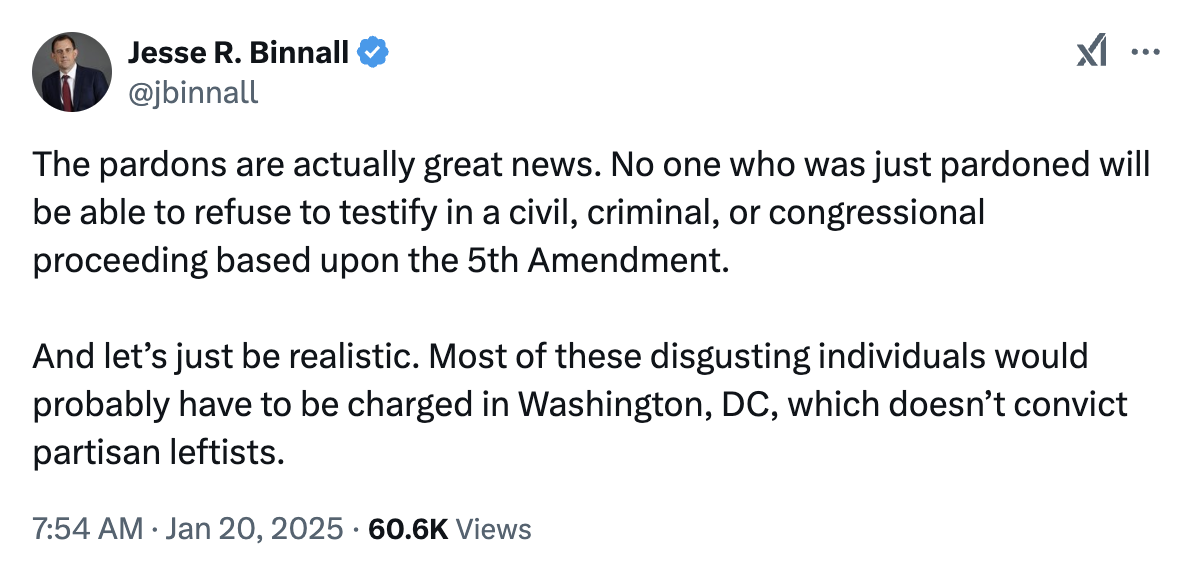President Joe Biden has issued a spate of pre-emptive pardons — which some are now questioning whether or not they are constitutional — to include some of the most notorious figures targeted by conservatives throughout his term.
Liz Cheney and Dr. Anthony Fauci are among a select group of individuals to receive presidential pardons, a move aides to Biden say is intended to deflect any potential acts of vengeance by Trump or members of his incoming administration. However, legal experts quickly pointed out that these high-profile pardons would not shield Cheney or Fauci from testifying under oath.
If they choose to do so, House or Senate Republicans could subpoena Cheney, Fauci, Hunter Biden, or anyone else they believe might provide insight into possible misconduct by the Biden-Harris administration. While it remains uncertain whether GOP lawmakers will persist in their investigations into the Biden family and its business dealings, if they do, the individuals mentioned are likely to be included on a congressional witness list.
Jesse Binnall, a federal litigation attorney, pointed out that Biden’s pardons won’t shield Cheney or Fauci if they commit perjury. In other words, the pardons are “great news” for those aiming to see both individuals prosecuted. “The pardons are actually great news. No one who was just pardoned will be able to refuse to testify in a civil, criminal, or congressional proceeding based upon the 5th Amendment,” Binnall wrote on X. “And let’s just be realistic. Most of these disgusting individuals would probably have to be charged in Washington, DC, which doesn’t convict partisan leftists.”

Protections under the Constitution’s Fifth Amendment grant individuals the right against self-incrimination; however, a presidential pardon’s blanket amnesty effectively removes that necessity. For instance, if Representatives Jim Jordan (R–OH) or James Comer (R–KY) were to use their committee powers to question Cheney about the January 6 committee’s findings, she would be expected to answer truthfully.
This could involve confirming whether she ever suppressed evidence that might have cleared Trump or pressured witnesses to alter their testimonies.
Meanwhile, Fauci might be compelled to speak candidly about whether he attempted to undermine any of Trump’s directives during the pandemic. In the summer of 2020, the former top immunologist for the country began challenging some of Trump’s statements about the pandemic, at one point remarking that the president’s public comments were “not helpful” to the effort of “flattening the curve.”
Other recipients of the Sunday night pardons were General Mark Milley, the former Trump military advisor who later criticized him, and all other members of the J6 committee. “I believe in the rule of law, and I am optimistic that the strength of our legal institutions will ultimately prevail over politics,” Biden said in a statement.
“But these are exceptional circumstances, and I cannot in good conscience do nothing. Baseless and politically motivated investigations wreak havoc on the lives, safety and financial security of targeted individuals and their families,” he added.
Disclaimer: This article may contain commentary which reflects the author’s opinion.

